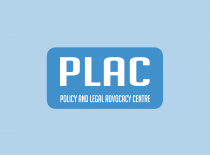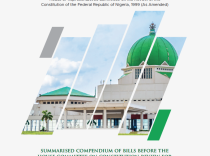The Senate and House of Representatives commenced debate on the general principles of the 2017 Appropriation Bill at its plenary sessions of Tuesday, January 24, 2017.
Leading the debate in the Senate, Sen. Ahmed Lawan (APC: Borno) stated that the 2017 budget was designed to support the Federal Government’s long-term objectives for sustainable development, inclusive growth and job creation. Sen. Lawan commended the efforts of the Federal Government stating that the proposal therein were laudable and tailored to meet the critical needs of the country. He noted that the aggregate revenue of the 2017 Budget has been increased by 28% when compared to the 2016 budget.
Speaking in support of the budget, Sen. Lawan further explained that the budget will focus more on macro-economic stability, consolidating structural reforms, enhancing governance, and diversification of the economy among others. He noted that the increased Capital Expenditure of the 2017 Budget was deliberately structured to improve and effectively address critical areas of the economy as well as pull the economy out of recession. In addition, he said that the FG proposes to borrow N1.06trillion from external sources and N1.25trillion from domestic borrowing to finance deficit. He gave the sectoral allocations meant to stimulate and reduce infrastructural deficit as follows:
- Special Intervention Programme- N150billion
- Power/Works and Housing- N529billion
- Transport- N262billion
- Education – N50billion
- Industry, Trade and Investment- N81billion
- FCT- N37billion
- Niger Delta Ministry- N33billion
- NDDC -N61billion
- Water Resources-N85billion
- Defence- N140billion
- Health- N57billion
- Interior-N63billion
- UBEC- N92billion
For recurrent expenditure, the following allocations to institutions includes:
- Education- N398billion
- Defence-N325billion
- Health- N252billion
- Interior- N482billion
Furthermore, he elucidated that the FG in delivering its development objectives increased the capital expenditure of the budget from N1.8trillion in 2016 to N2.24trillion which represents 30.7% of the total budget. He added that N100billion has been provided for Special Intervention Fund and N213.14billion as counter-part funding for Lagos-Kano, Calabar-Lagos, Ajaokuta-Itakpe-Warri and Kaduna-Abuja railway projects. However, the FG introduced new initiatives into the 2017 budget and these includes:
- A new social housing Programme- N100billion
- Special Economic Zone Projects- N50billion
- Export-Expansion Grant (E.E.G)- N20billion
- Recapitalization of Banks of Industry and Agriculture – N50billion
The details of the Budget were also presented at the House of Representatives and Hon. Femi Gbajabiamila (APC: Lagos) urged the House to revisit the Oransanye and Ahmed Joda reports on merger of MDAs so as to reduce cost of governance and free up more money from capital expenditure at a minimum of 40%.
Both Chambers will continue debate on the next legislative day, Wednesday, January 24, 2016.





